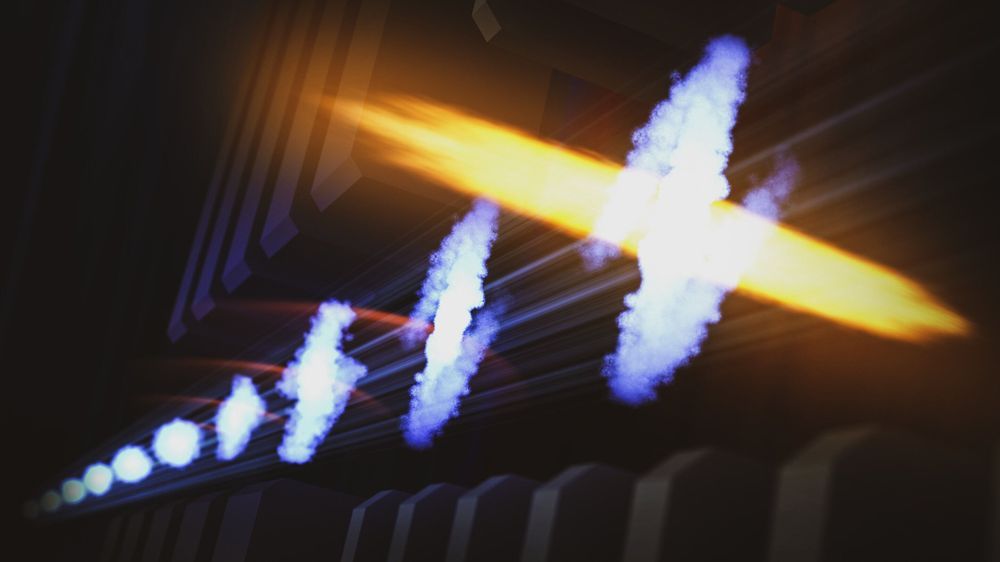The Starship, SpaceX’s under-construction giant rocket, is about to tackle a big new challenge.



In the first experiment to take advantage of a new technology for producing powerful attosecond X-ray laser pulses, a research team led by scientists from the Department of Energy’s SLAC National Accelerator Laboratory and Stanford University showed they can create electronic ripples in molecules through a process called “impulsive Raman scattering.”
Exploiting this unique interaction will allow scientists to study how electrons zipping around molecules kick off key processes in biology, chemistry, materials science and more. The researchers described their results in Physical Review Letters.
Typically, when X-ray pulses interact with matter the X-rays cause the molecules’ innermost “core” electrons to jump to higher energies. These core-excited states are highly unstable, decaying in just millionths of a billionth of a second. In a majority of X-ray experiments, that’s how the story ends: The excited electrons quickly return to their rightful places by transferring their energy to a neighboring electron, forcing it out of the atom and producing a charged ion.
Independent Premium Comments can be posted by members of our membership scheme, Independent Premium. It allows our most engaged readers to debate the big issues, share their own experiences, discuss real-world solutions, and more. Our journalists will try to respond by joining the threads when they can to create a true meeting of independent Premium. The most insightful comments on all subjects will be published daily in dedicated articles. You can also choose to be emailed when someone replies to your comment.
The existing Open Comments threads will continue to exist for those who do not subscribe to Independent Premium. Due to the sheer scale of this comment community, we are not able to give each post the same level of attention, but we have preserved this area in the interests of open debate. Please continue to respect all commenters and create constructive debates.


Three physicists won a $3 million Breakthrough prize for proving there is no fifth force (that we know of). And it all started with a series of table-top experiments using cheap equipment.
Eric Adelberger, Jens Gundlach and Blayne Heckel together lead the “Eöt-Wash Group,” which is devoted to precise tests of physical laws. They take their name from the early-1900s physicist Loránd Eötvös and the University of Washington, where they work. These Eöt-Wash researchers got their start in the mid-1980s, using a device known as a “torsion balance” to disprove claims of an undiscovered fifth force in physics. Since then, they’ve used more elaborate versions of the same device to test the true strength of gravity, detect the tug of dark matter in the Milky Way and search for theoretical physical effects like extra dimensions and “axion wind.”

Real Mars video
1.8 billion pixels! Amazing new Mars panorama from Curiosity.
For 10 years NASA has been capturing images of mars and they now reveal the planet’s amazing beauty.
Omlet Arcade is the largest mobile gaming and livestreaming community. Stream, play, and win with fellow PUBG Mobile, Fortnite, Minecraft, Roblox, Mobile Legends, and Free Fire gamers today!
Astronomers have detected a stinky gas on Venus called phosphine, and weirdly enough, it could be a sign of alien life in the planet’s clouds. It’s still too early to say for sure that Venus hosts life forms, but the discovery opens up a lot of questions about what’s happening on Earth’s neighbor.

The blob is neither animal, plant, nor fungus. The remarkable species can find and digest food, form together with others, and pass on knowledge.
